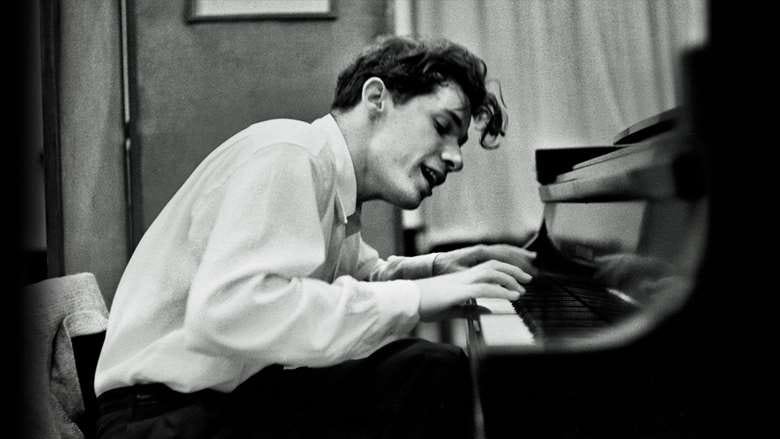“The purpose of art is not the release of a momentary ejection of adrenaline but rather the gradual, lifelong construction of a state of wonder and serenity.” - Glenn Gould
Are there any pieces of music that speak to you in wordless ways?
Since I’ve been drawn to music all my life, my list of these pieces is plentiful. But there’s one particular work that’s haunted me for years with a Proustian madeleine kind of flavour.
When I was young, one of my favourite CDs to listen to was Glenn Gould’s …And Serenity (2003). On it, the Torontonian pianist plays a range of pieces by Brahms, Mendelssohn, Scriabin and other composers (a far cry from his usual Bach!* ). I’d listen to Glenn Gould’s 2003 album on a discman as I went to sleep in dorm rooms as a late teenager.
*NB: My beloved late grandfather, who was close friends with Gould before they had a falling out, once told me that Gould’s playing of anything other than Bach was “overrated”. Agree to disagree.
My favourite piece on Gould’s recording was his playing of Brahms’ Intermezzo No. 2 in A Major, Op. 118 - Andante teneramente (roughly translating to played not too slow, not too fast, and with tenderness). Something about the opening falling and ascending phrase and Gould’s painfully impassioned use of rubato never failed to tug at my heartstrings. And I know I’m not alone. I remember listening to the CBC Radio 2 show, And This Is My Music, and famous stars would often pick the Intermezzo as one of their favourite pieces as well.
In first year undergrad, I had a hilarious friend from Israel studying music education. For a benefit concert I was volunteering with, I asked him at the break what he’d be playing. When he told me it was Brahms Intermezzo No. 2, I exclaimed, “That’s my favourite piece!!” Perhaps in an effort to embarrass me (I’ll never know), when he got on stage about ten minutes later, he announced into the microphone, “This piece goes out to a very special someone,” before proceeding to play the opening bars. I think I cried tears of laughter/joy/mortification (don’t worry, it wasn’t romantic. I wasn’t his type. His sister liked to tell us stories of his ultimate rebellion of dating a Palestinian guy to piss off his moderately homophobic, Israeli Nationalist parents).
Years later, when I attended yoga teacher training while recovering from life/career/pandemic-related disruptions, our group leader asked us to make a five-minute presentation about what led us to yoga. Rather than go for the group therapy-style presentation many people had prepared, I opted to share a portion from Emmanuel Carrère’s novel Yoga, where he quotes Glenn Gould about how an artist’s life revolves around the cultivation of states of wonder and serenity:
“Freud has a second definition of mental health, just as striking as the first: no longer prey to neurotic misery, but just to common unhappiness. Neurotic misery is a state we ourselves create in a horribly repetitive way, ordinary unhappiness one that life holds in store for us in ways that are as varied as they are unpredictable. You have cancer, or worse yet, one of your children has cancer; you lose your job and are plunged into poverty: ordinary unhappiness. I myself have been largely spared ordinary unhappiness: no great sorrows, no health or money problems, children who are making their way in life, and the rare privilege of having a career I love. As far as neurotic misery goes, though, I’m second to none. I don’t want to brag, but I’m exceptionally good at turning a life replete with all it takes to be happy into a veritable hell. And I won’t have anyone making light of this hell: it’s real, terribly real. However, against all odds, it seems I’ve escaped it. In January 2015, it seems I can say I’m in the clear. Of course, I’m careful not to get smug, I know it could be an illusion—but is an illusion that lasts for ten years still an illusion? What makes this moment of my life so good? What’s behind this progress? Psychoanalysis? Frankly, I don’t think so. I’ve spent almost twenty years on couches without any noticeable results. No, I think it’s simply love. And maybe meditation. Yoga, meditation: I use these two words more or less interchangeably. I think that like love and writing, yoga and meditation will accompany, support, and carry me with them until I die. I view the last quarter of my life—because, statistically, at almost sixty that’s the phase I’m entering—in line with Glenn Gould’s maxim, which I’ve copied so often into so many successive notebooks: ‘The purpose of art is not the release of a momentary ejection of adrenaline but is, rather, the gradual, lifelong construction of a state of wonder and serenity.’” - Emmanuel Carrère (translated by John Lambert)
After reading the excerpt to my group of fellow yogi trainees, I turned on Gould playing Brahms’ Intermezzo No. 2.
In a strange moment of serendipity, just before me, a friend in the class shared how classical music helped him to recover from a stressful and at times, traumatic job. He shared how one night on a long drive home from work, the radio host he’d been listening to played that same Brahms Intermezzo, which caused tears to roll down his cheeks. He shared a recording of it (not played by Gould), coincidentally, for his presentation as well, breaking down into tears when he realized I’d picked the same piece.
Can a piece of music be magic? What pieces hold this sort of power for you? Let me know your thoughts in the comments.
Xox





My recommendation is an aria from Giordano’s opera Fedora. ´ Amior ti vieta.´ I listen to Jonas Kaufman’s interpretation of this song and it pulls at my heart strings.